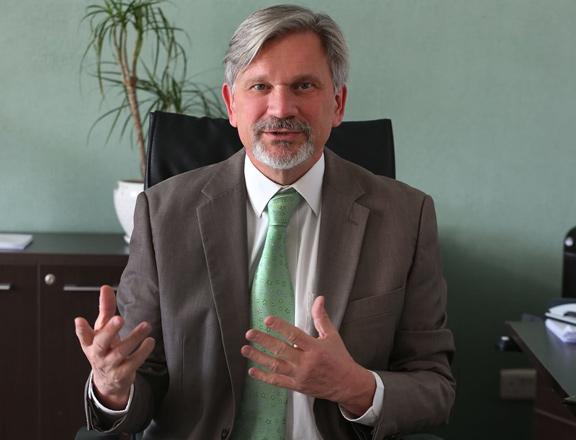- Local News
- Tue-2021-03-02 | 01:38 pm

Nayrouz News Agency :
Jordan has again demonstrated an inspiring role model in including refugees in its vaccination drive with no "single moment of hesitation and no distinction whatsoever", UNHCR Representative to Jordan Dominik Bartsch has recently said.
"It is very important to acknowledge the very unique setting we have here in Jordan. From the first moment His Majesty King Abdullah has confirmed that refugees are included in the coronavirus response, every step in the way you have seen that in practice," Bartsch said in a recent interview with The Jordan Times.
Jordan launched a nationwide vaccination drive on January 13. Raia Al Kabasi, an Iraqi living in Irbid, was the first refugee in the world to receive the COVID-19 vaccine, according to the UNHCR. "We just want life to be back to normal,” Kabasi said in a UNHCR statement. "The vaccine is the right way of doing this.”
The government has said that everyone living in Jordan, including refugees and asylum seekers, are entitled to receive the vaccine for free.
According to the UNHCR, refugees constitute around 10 per cent of Jordan’s population. Among them are 655,000 Syrians, 67,000 Iraqis, 15,000 Yemenis, 6,000 Sudanese and 2,500 refugees from 52 other nations. More than 80 per cent of them live outside refugee camps, in cities and towns.
Bartsch said that, in including refugees in the inoculation drive, Jordan has been applying an "important commonsense health measure" to fight the coronavirus. "When you want to fight this pandemic you cannot exclude one group. You have to apply the same criteria to everyone."
"Refugees are always there in the government's decisions and this makes us very proud to operate in this country … There is no single moment of hesitation and no distinction whatsoever … This serves as an example to many other countries around the world," the ambassador said.
He also explained that there are discussions in societies in other countries on whether to include refugees in vaccination drives or not "but there was never such discussion in Jordan".
"It was always clear in Jordan that we cannot protect ourselves if we leave other group behind. The spirit of how the government of Jordan planned its vaccination campaign and decided to leave no one behind needs to be prevailed at a global level.”
Bartsch said that the vaccination centre in the Zaatari refugee, home to around 80,000 Syrian refugees, was the first of its kind in the world and is "an integral part of Jordan’s endeavour to combat the coronavirus and part of the commonsense health procedures”.
"It is not only about being nice to refugees but because the refugee camps are big population centres and rollout requires that you cover them.”
Mohammad Hawari, spokesman in Jordan for the UN’s refugee agency, told The Jordan Times that 2,000 Syrian refugees had registered to receive the jab of which 1,200 qualified under the Kingdom’s priority system for the elderly, health workers, and those with chronic conditions.
Hawari said that a total of 248 refugees have been vaccinated so far in the Zaatari camp, of which 154 have received their second doses









